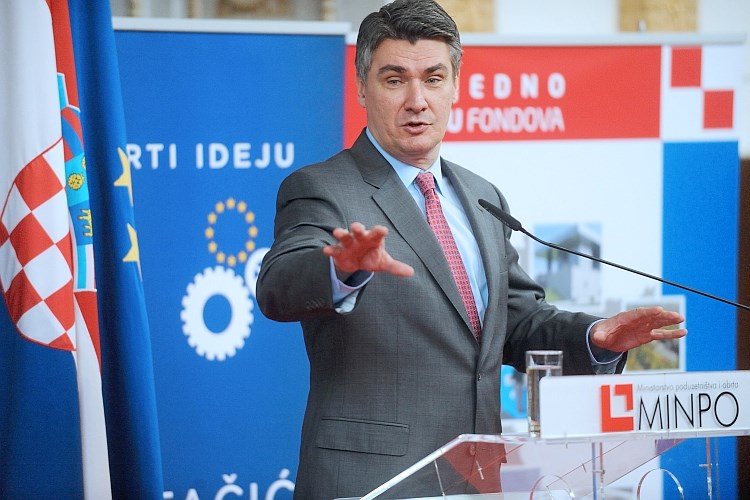


"Our objective is to totally remove the financing of public projects from the central or local budgets and ensure their financing from European funds," Milanovic said. He added that Croatia should not finance large projects like motorway construction on its own.
In his opinion, the measure of Croatia's success in exploiting the benefits of its EU membership is in fact the level of absorption of EU structural and cohesion funds.
"We have started off well by adopting the Partner Agreement," the prime minister said, adding that this was just the beginning and that Croatia still had a lot of work to do.
He concluded that EU funds were a good lesson for Croatia, and that in competition with other countries, following very strict rules, it should try to achieve as many of its interests as possible.
"This is the first time that Croatia can work exclusively for itself and that needs to be utilised," said Milanovic.
Entrepreneurship Minister Gordan Maras underscored that not one eurocent which is available for use by Croatia "must fall through."
With the assistance of those funds, according to Maras, Croatia wishes to have 40% more productive small and medium businesses by 2020 than it has today and it wants to be an EU centre for entrepreneurial learning.
"Just this year alone we will advertise tenders worth HRK 3.9 billion for the use of European money for trades and SMEs of the HRK 7.4 billion that Croatia has at its disposal from 2014 to 2020," Maras said.
Deputy Prime Minister and Minister of Regional Development EU Funds Branko Grcic underscored that the government's objective was to utilise European funds to create as many new jobs as possible and to encourage a competitive economy.
"The total potential from EU funds is huge and amounts to HRK 96 billion from 2014 to 2020, which is almost the amount of an entire annual budget and it is up to everyone in Croatia - the government, local communities, entrepreneurs and others - to use it," Grcic said.
The "Together for EU funds" conference was organised by the government and is the first presentation of possible investments through EU funds earmarked primarily for small and medium entrepreneurs, for which HRK 3.75 billion kuna in grants has been set aside for 2015 alone.
Croatia has more than HRK 80 billion allocated to it from European structural and investment funds for the 2014-2020 financial period. Over the next few months the government intends to present possible investments from EU funds for rural development and agriculture, sustainable development and clean environment, better transport connectivity, employment, regional and urban development, natural and cultural heritage, and social infrastructure.
(Hina) sp